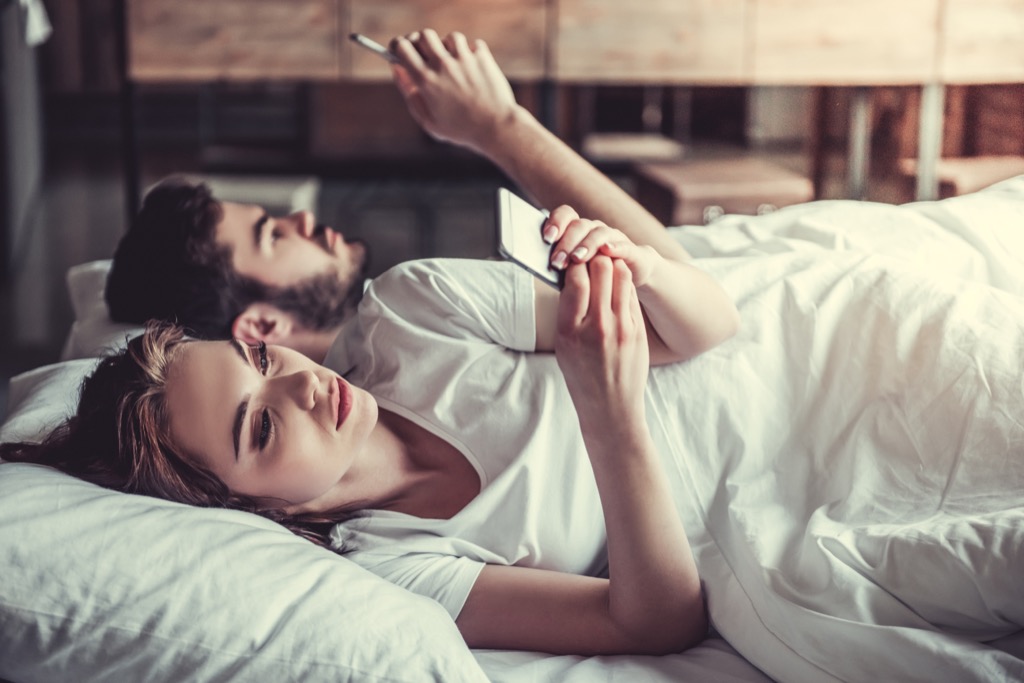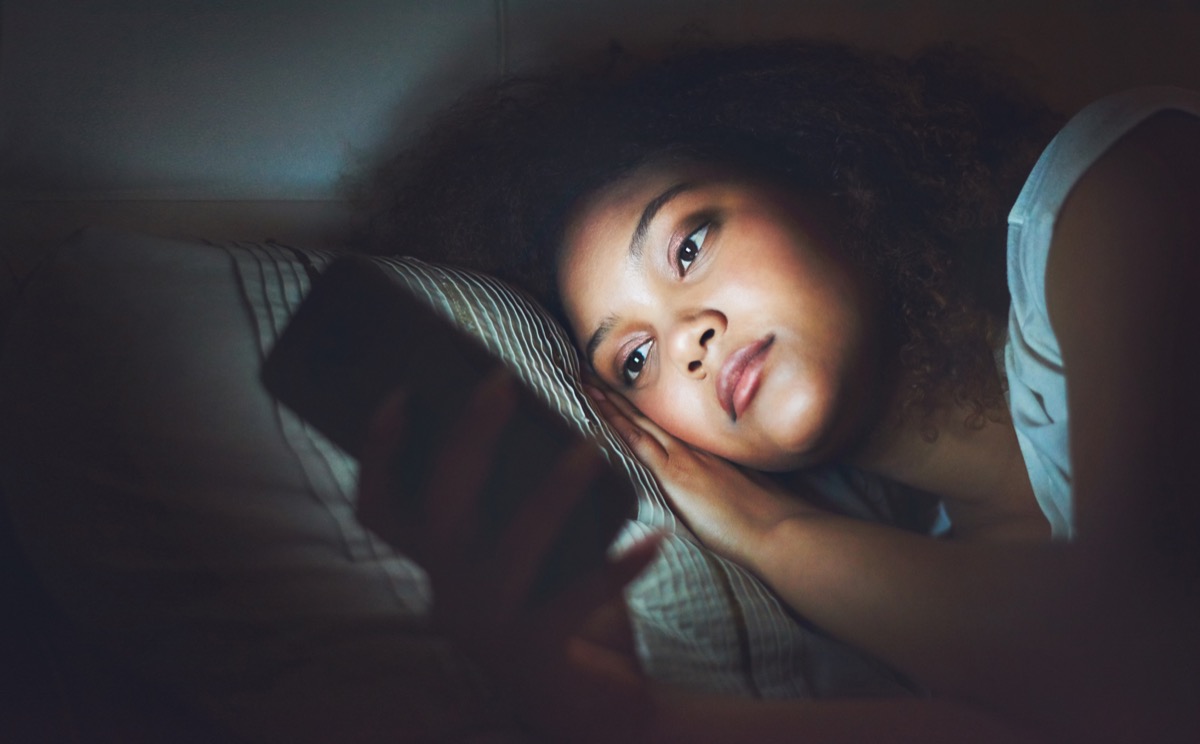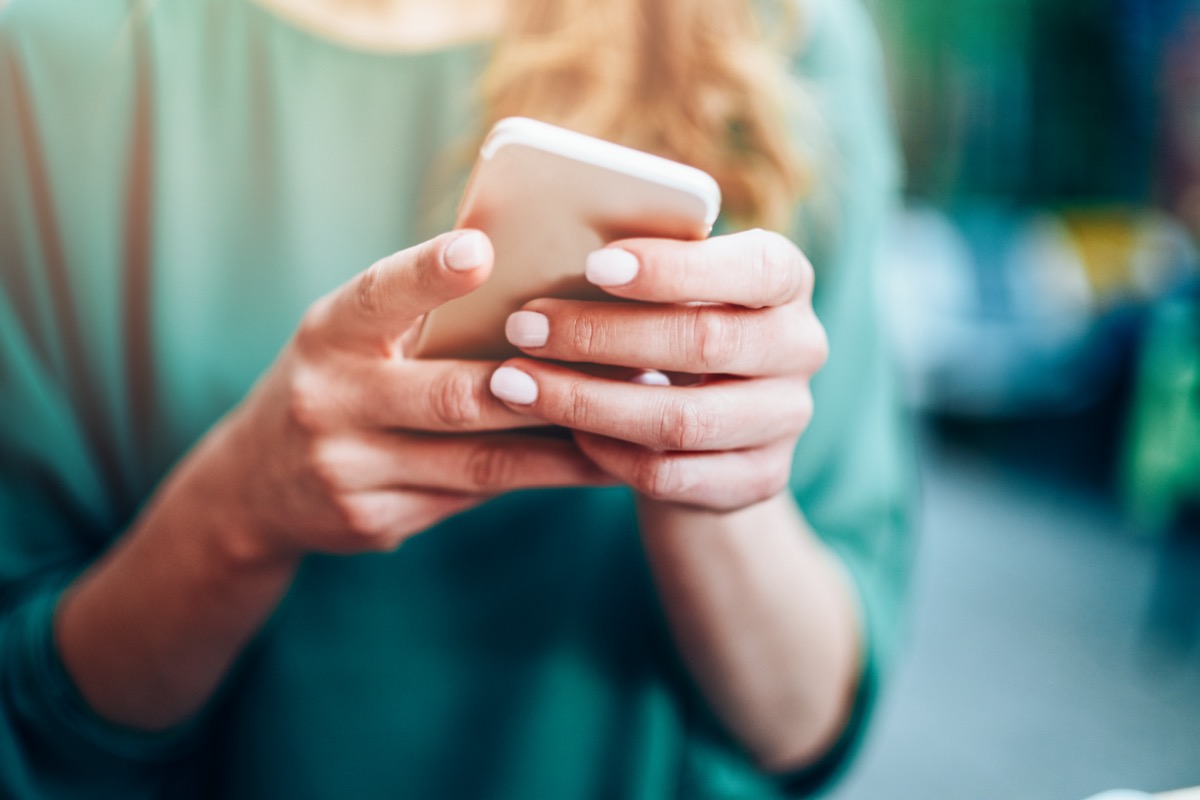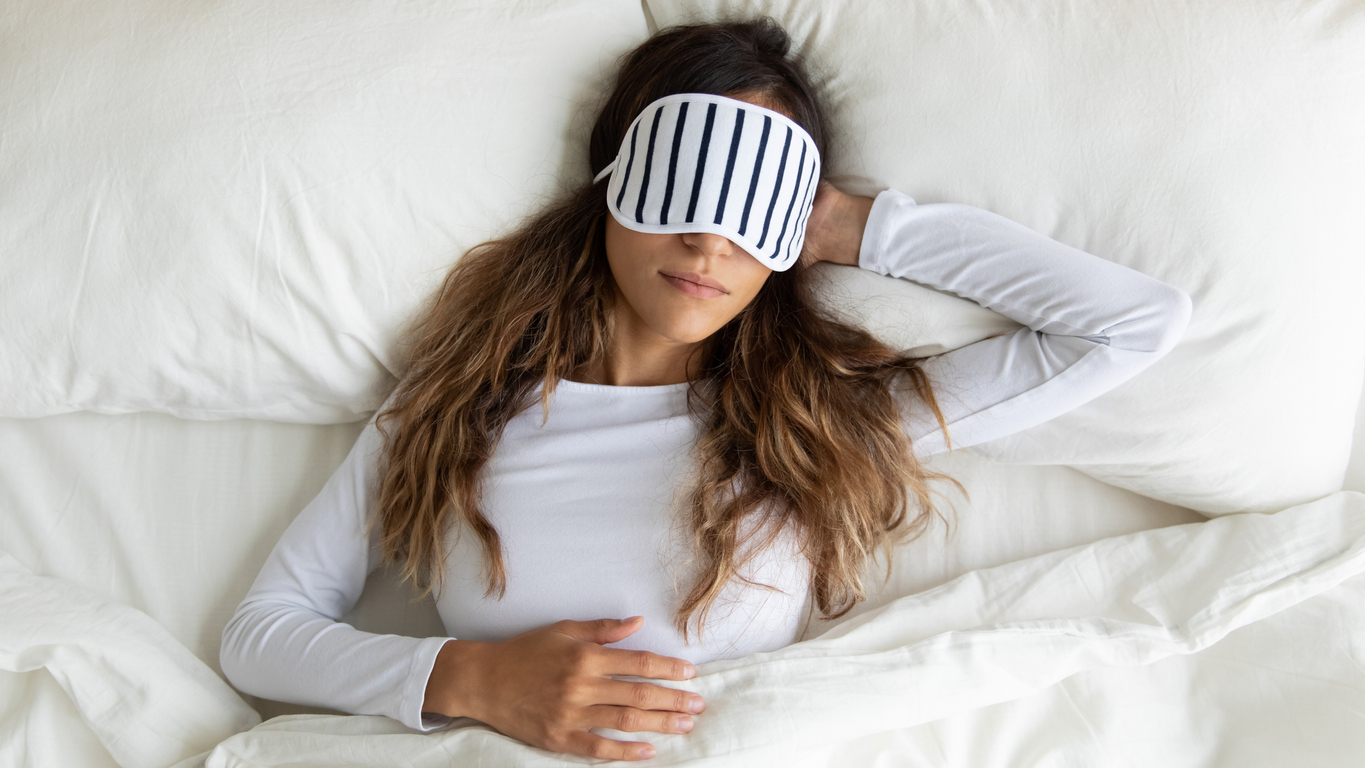The discovery comes from a recent study published in the journal Frontiers in Psychiatry on March 2, in which 1,043 students at King’s College London between the ages of 18 and 30 responded to scientific questionnaires about their smartphone usage and sleep quality, CNN reports. Results showed that 39 percent of respondents could be classified as “addicted” to their phones and that those who had reported longer hours of phone usage were also more likely to report poor sleep quality. The study authors concluded that the connection between diminished sleep quality and “problematic smartphone use” could make addictive patterns easier to spot. “Should smartphone addiction become firmly established as a focus of clinical concern, those using their phones after midnight or using their phones for four or more hours per day are likely to be at high risk,” they wrote, also reporting that “use after 1 a.m. [confers] a 3-fold increased risk [of addiction].” And for more on other things you should avoid at bedtime, check out This Is the Worst Position You Could Sleep In, Experts Says. While the authors point out that plenty of existing studies have established a link between poor sleep quality and increased phone use, at least one outside expert pointed out some of the study’s shortcomings. “This is a cross-sectional study, and as such cannot lead to any firm conclusions about phone usage as the cause of reduced sleep quality,” Bob Patton, PhD, a lecturer in clinical psychology at the University of Surrey in the U.K., told CNN in an email.ae0fcc31ae342fd3a1346ebb1f342fcb But Patton, who also serves as a lead for the Drugs, Alcohol & Addictive Behaviours Research Group at the university, said there was value to the study, adding: “It does, however, provide some compelling evidence that the nature of smartphone usage and its related consequences are important considerations in addressing the emerging phenomenon of ‘smartphone addiction.’” Phone addiction or not, the study authors point out that research has prove screen time affects your circadian rhythm, which is the body’s pattern that determines sleep cycles. If you’re looking to prepare yourself for a good night’s sleep, make sure there are “no computers, cell phones, and PDAs in bed and at least one hour prior to bedtime,” Vsevolod Polotsky, MD, who directs sleep basic research in the division of pulmonary and critical care medicine at Johns Hopkins University School of Medicine, told CNN in an interview. And for more on what could help you hit the hay, check out Wearing These Just Before Bed Could Help You Sleep, Study Finds.



